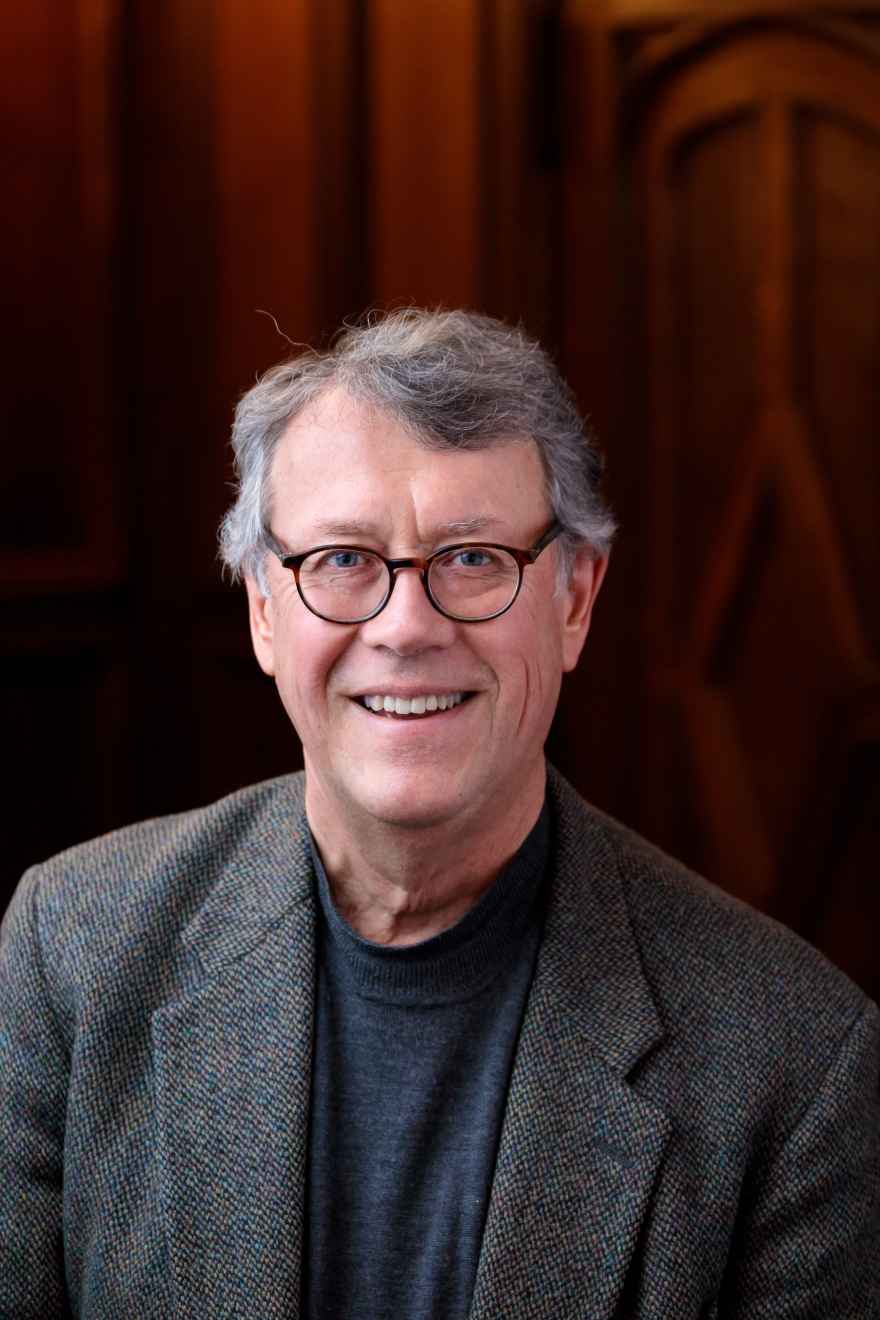Prof. Philip V. Bohlman to address complexity of "doing good" through music during Humanities Day keynote

By Sara Patterson
A pioneering ethnomusicologist, Prof. Philip V. Bohlman seeks to reveal how music helps human beings deal with critical ideas and look at crucial problems in migration globally. He uses a multidisciplinary approach in which ethnography, historical research and music performance intersect. His work in ethnomusicology spans multiple languages and continents.
“Ethnomusicologists study world music, which often occurs in places where human societies are in danger such as borderlands for migrants,” said Bohlman, the Ludwig Rosenberger Distinguished Service Professor and artistic director of the New Budapest Orpheum Society in the Department of Music at UChicago. “Music crosses borderlands and can connect people.”
Bohlman will discuss ethnomusicology’s influence in the world on Oct. 26 in his keynote address during Humanities Day—a revered tradition since 1980—providing a window of UChicago research to the public and amplifying the power of live music, art, literature, philosophy, linguistics and language.
During his presentation entitled “On Goodness,” he will explore how complex the simple phrase “of doing good” becomes for ethnomusicologists. Several members from the New Budapest Orpheum Society and the Chicago Mehfil will join Bohlman on stage to play music at Logan Center of the Arts Performance Hall.
A prolific author in English and German with translations in multiple languages, Bohlman’s first edition of Music, Nationalism, and the Making of the New Europe received the Derek Allen Prize for Musicology from the British Academy. His edited volume, The Cambridge History of World Music (2013), received the 2015 Bruno Nettl Prize from the Society of Ethnomusicology. In 2015, Bohlman and the New Budapest Orpheum Society were nominated for a Grammy Award for their double CD “As Dreams Fall Apart.”
A recipient of the International Balzan Prize in 2022, Bohlman has organized Balzan symposia in 2024 at UChicago and other parts of world to gather young scholars to spark conversations about music, migration and borderlands, that help reconcile and confront differences.
In this edited Q&A, Bohlman discusses why it’s important to explore the meaning of goodness in music, what fascinates him about borderlands and how ethnomusicology became his life’s work.
Why is it important for ethnomusicologists to explore the meaning of goodness in music?
In large part, we conduct ethnomusicology in many regions of the world where people are in demanding situations. Through music, we try to give these individuals a voice. Music allows them to participate, share their concerns, resolve conflicts and feelings of oppression. To place it in simple terms, we help to find the good in their lives and societies. To bring about good changes to societies, our students are working in places such as Kurdistan, Rohingya refugee camps along the Bangladesh-Myanmar border, and poverty-stricken areas of the Caribbean.
Why do the aesthetic, religious and musical borderlands hold such fascination for your scholarship?
Through the years, I have found myself working on borderlands. Borders create new passages but also can be problematic. I prefer to focus on the borderlands instead of borders. Borderlands are spaces blocked off by borders. Music flows across borderlands.
What is distinctive about the culture at UChicago, and how has it changed your research and scholarship?
In 1987, when I started in ethnomusicology at UChicago, no one else in the Music Department was working in the field. Now it has expanded to three tenured faculty and one tenure-track faculty member studying this field of music. UChicago is the ideal place to do ethnomusicology. We have some of the best students in the world and a culture of interdisciplinary scholarship.
Ethnomusicology intersects with fields such as anthropology, folklore studies, languages, Middle Eastern studies, literature and Latin American studies. At UChicago, I have made global connections through its Centers in Delhi, Hong Kong and Paris. Overall, music is a global presence at UChicago.
What drew you to becoming an ethnomusicologist?
Most music scholars begin as performers, studying music early in their lives. I grew up in rural Wisconsin and was the town musician, playing the piano. I have found that performance helped me to understand questions about what music really is and define what good music is. It is also a way of creating a conversation between the objects and subjects of music.
When I started my doctorate, I was looking for a field of study in music to expand my ideas. I took a course on folk music with the pioneering ethnomusicologist Bruno Nettl at the University of Illinois. I asked him if I could do a project on a group of farmers in southern Wisconsin who sing a vast repertoire of songs while being barely literate. Bruno approved my project, opening the door to ethnomusicology for me. The field is about hearing all people, not just those who are highly trained, and doing fieldwork.
What are your current projects?
On the front burner, I am working two books: “Introduction to the Field of Ethnomusicology” for Cambridge University Press and “The Cabaretesque in Jewish Music,” which I expect to offer to the University of Chicago Press. For the University of Chicago Press, I am co-editing with Timothy Rommen, PhD’02 “Chicago Studies in Ethnomusicology,” a series that has been published since 1990. Also, I am working on the “33 1/3” series by Bloomsbury for a book about the 1976 live concert in Cologne, by the singer-songwriter Wolf Biermann of Germany, which became the musical emblem for the final political struggle between East and West Germany. Biermann is the Pete Seeger of Germany.
Humanities Day will be held on Saturday, Oct. 26, from 11 a.m. to 5:30 p.m. throughout the University of Chicago campus. The event is free and open to the public. To register for sessions in person or virtually visit the Humanities Day website.